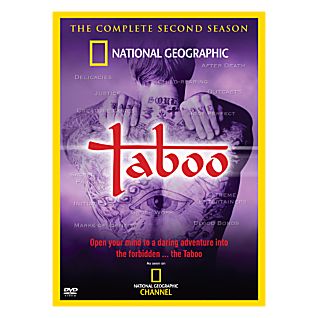
I remember a fantastic show on Nat Geo called "Taboo." It documents various cultures around the world and their strange customs. I particularly remember one episode about "Rites of Passage." This program dealt with how different cultures handle the transition of child to adult, mostly from a male-centric point of view. Every culture has different ways to celebrate this milestone, some of which are just social constructs (meaning that the event / celebration is just arbitrary and created by society - a "sweet sixteen" party for instance.)
As I watched the show I realized how lucky I was to have become a man in the United States. Many cultures take the transition from boy to man quite seriously, usually marking it with physically or emotionally challenging contests. For instance, several African and Pacific cultures use ritualized branding or tattooing to mark the coming of age. This might be as simple as a small tattoo or as intense as a full facial brand. Perhaps a more famous example is the Agoge as displayed in the movie "300." While the film is a work of fiction, the Agoge was a real experience. The movie dramatized the event somewhat, but those undertaking the Agoge were underfed and given no comfort, just as it was portrayed.

The other side of the coin is composed of the religious ceremonies that deal with the coming of age. These include Confirmation in the Christian faith, the Bar (or Bat) Mitzvah in the Jewish faith, Rumspringa in the Amish community, or the Sanskar among Hindus and Buddhists. Many countries see the value in the ceremonies and have instituted secular versions, such as the borgaraleg ferming in Iceland or the Human-Etisk Forbund in Norway(which both roughly translate to "civil confirmation.") Interestingly, America has no singular cultural indicator for the transition from youth to adult; it is usually left up to the family or the faith to perform.
So, as I usually ask, "... but what does this have to do with DeMolay?" I'm hoping you've made the connection already, but if you haven't, DeMolay is easily identified as a Rite of Passage ceremony (with influence from its Masonic founders.) In fact, Masonry is just as a much a Rite of Passage as DeMolay. Let's examine this further, shall we?
In DeMolay, for the first time, a youth is asked to make a "journey" on his own with other young men of his age. On this "journey" the new members are instructed in life lessons that will help them better fit in with adult society (the seven cardinal virtues.) They then witness a drama that reinforces these ideals and are welcomed into the brotherhood after vowing to live by these ideals. That's pretty heavy stuff for your average 12 year old! But, this is just the start!
In DeMolay, for the first time, a youth is asked to make a "journey" on his own with other young men of his age. On this "journey" the new members are instructed in life lessons that will help them better fit in with adult society (the seven cardinal virtues.) They then witness a drama that reinforces these ideals and are welcomed into the brotherhood after vowing to live by these ideals. That's pretty heavy stuff for your average 12 year old! But, this is just the start!

There are several "milestones" along the DeMolay career, marking advancement in understanding and status. These include becoming Master Councilor, being awarded the Representative DeMolay, or being honored with the Degree of Chevalier. These are all part of the passage from teen to man. This process is even more apparent when a DeMolay decides to become a Freemason and join the fraternity. If he does, this marks his first time being welcomed among the "men" that have aided him on his DeMolay journey. When coupled together like this, DeMolay and Freemasonry are great examples of an extended Rite of Passage for our young men.
Now some might be cringing at this, thinking it sounds "cult" like. It is no more like "cultish" than getting a car at 16, registering for the Selective Service at 18, or voting in your first election. It's part of what our society has constructed to teach those who reside therein a system of morals and values that is acceptable to the culture as a whole. Let's be proud of what we have accomplished using this "system." Great men like Walt Disney, John Wayne, Bill Clinton, and many, many more can't be wrong!
Professor Anthony's sociology class is now over. Thanks for coming.
Frat! ~ "Dad" Seth Anthony

No comments:
Post a Comment